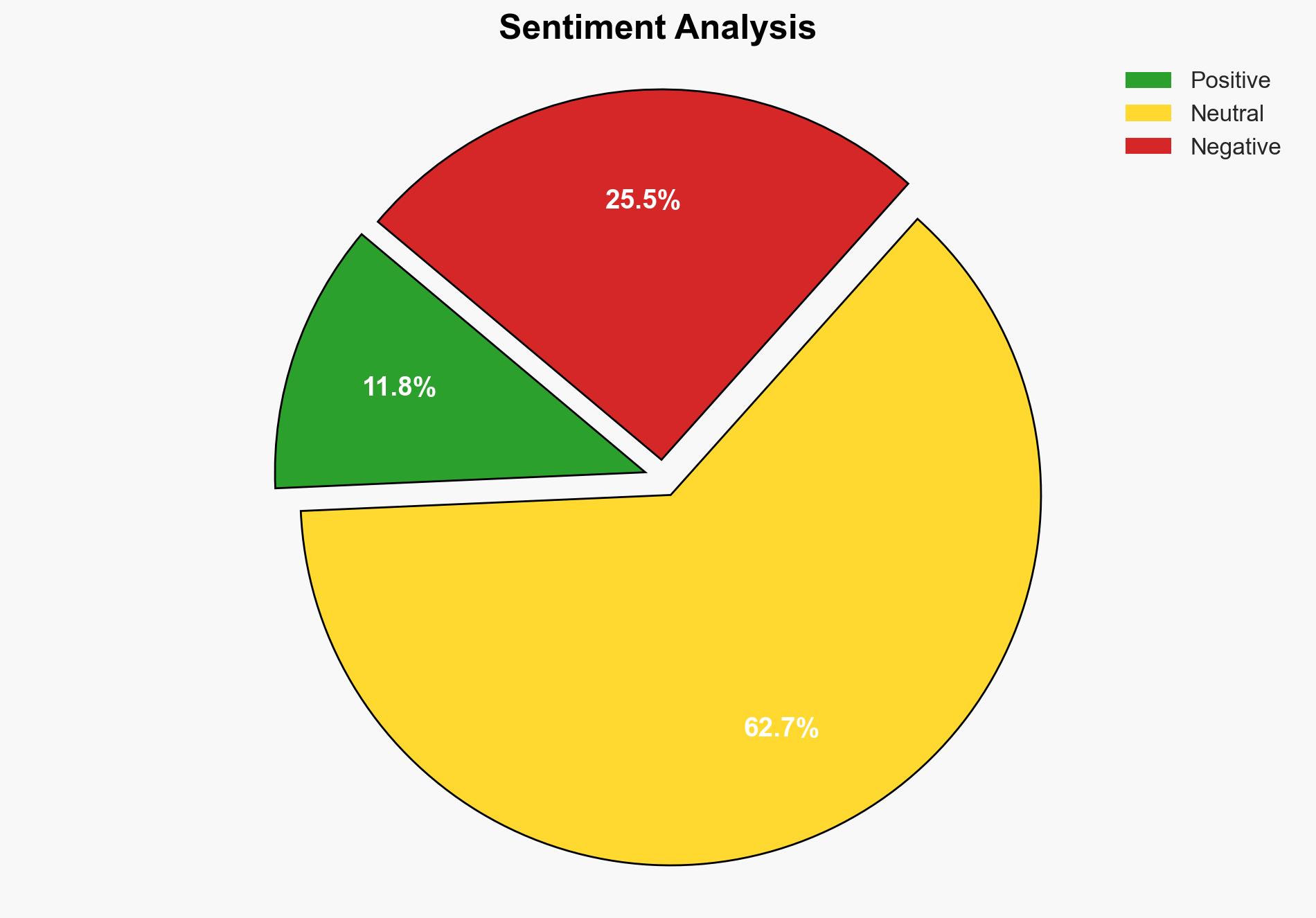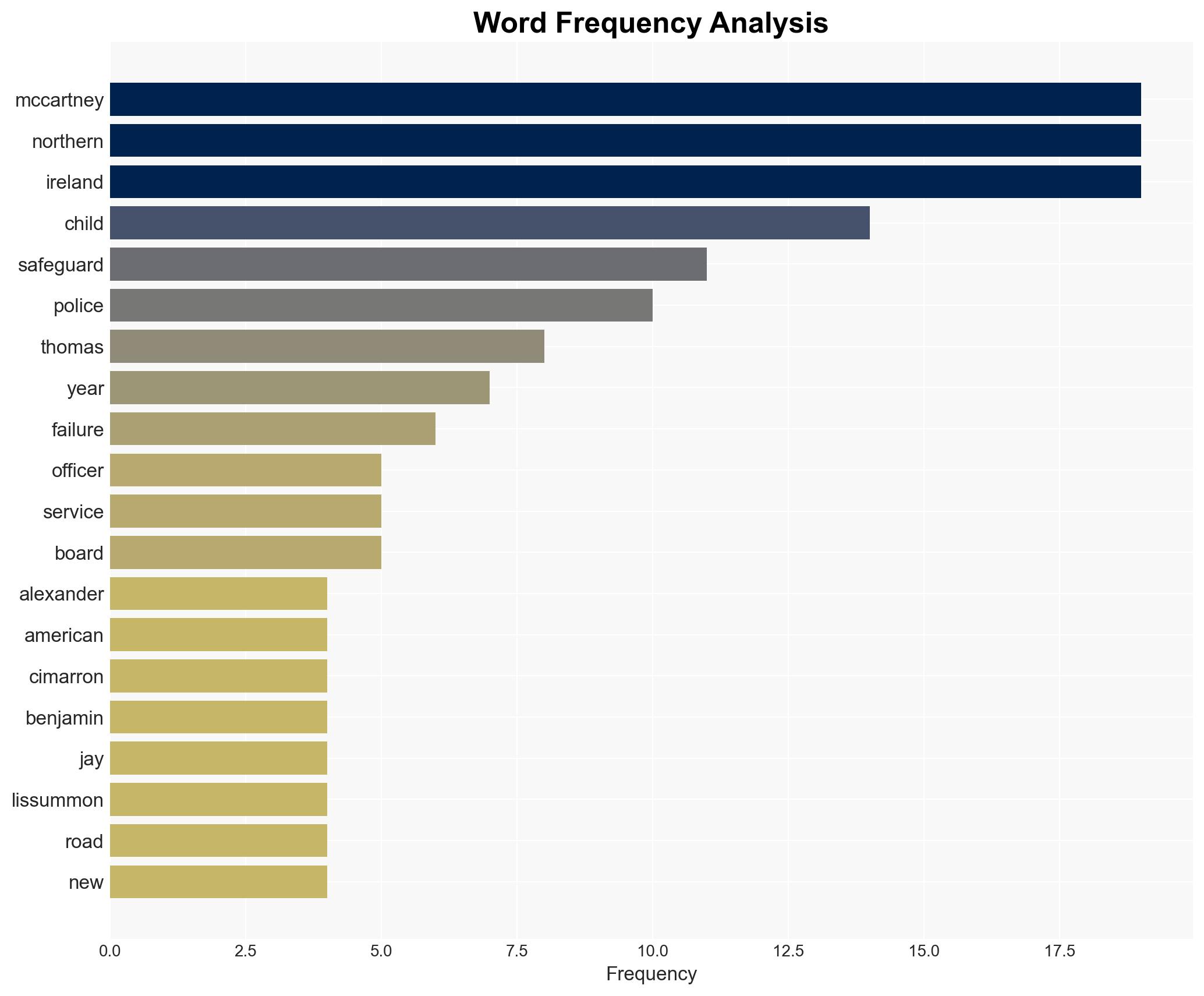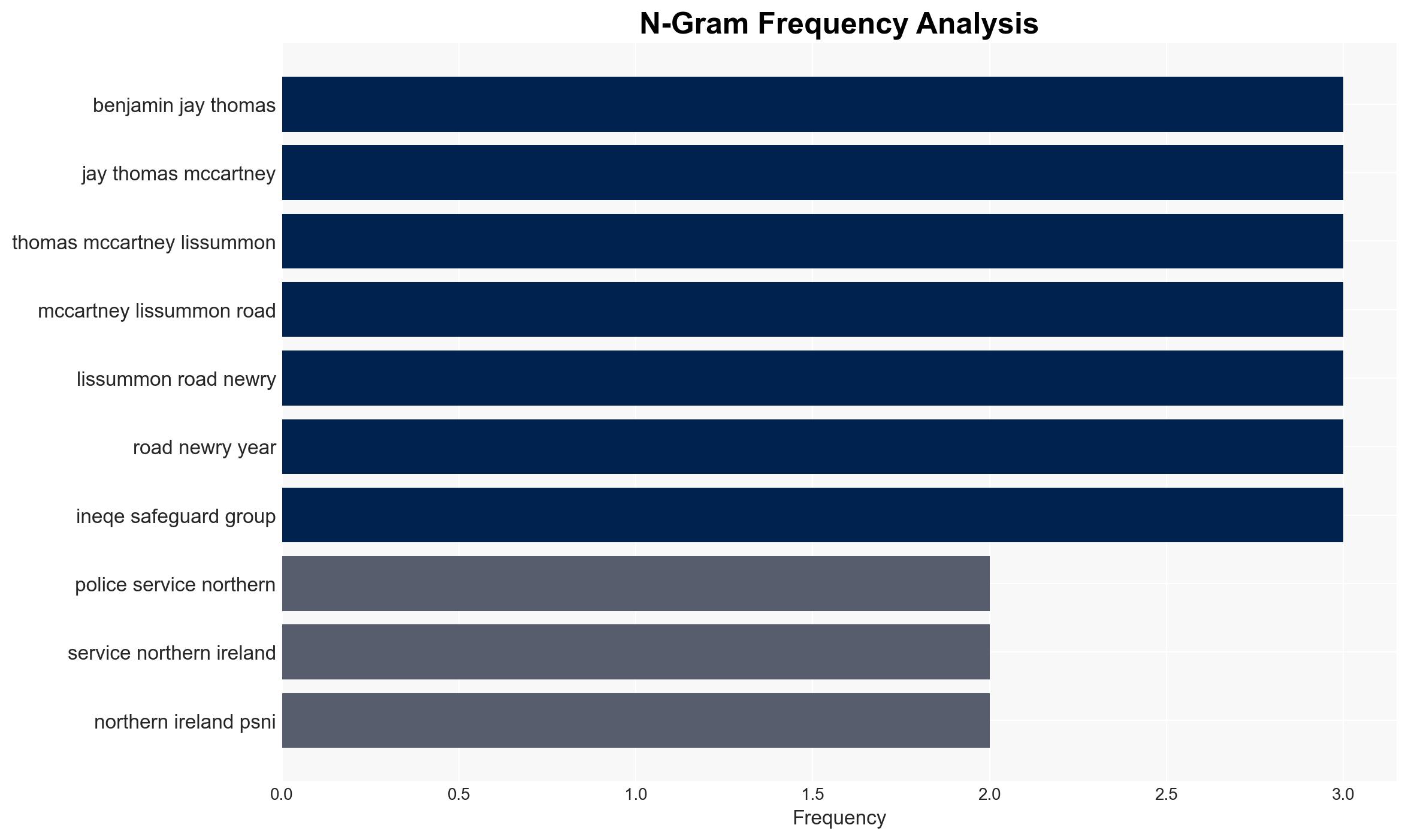Opinion Lessons of catfisher Alexander McCartney case go way beyond one failed investigation – The Irish Times
Published on: 2025-11-17
AI-powered OSINT brief from verified open sources. Automated NLP signal extraction with human verification. See our Methodology and Why WorldWideWatchers.
Intelligence Report:
1. BLUF (Bottom Line Up Front)
The strategic analysis concludes with moderate confidence that the systemic failures in child protection and cybercrime management in Northern Ireland are primarily due to chronic underinvestment and political instability. The most supported hypothesis is that political neglect and resource misallocation are the root causes of the failures in the Alexander McCartney case. Recommended actions include prioritizing investment in cybercrime capabilities and establishing a multi-agency review to address systemic weaknesses.
2. Competing Hypotheses
Hypothesis 1: The primary cause of the failure in the Alexander McCartney case is systemic underinvestment in cybercrime resources and child protection services, exacerbated by political instability in Northern Ireland.
Hypothesis 2: The failure is primarily due to operational inefficiencies and mismanagement within the Police Service of Northern Ireland (PSNI), independent of political and resource issues.
Hypothesis 1 is more likely given the evidence of chronic underinvestment and political instability affecting resource allocation and strategic prioritization. Hypothesis 2 is less supported as it overlooks the broader systemic and political context impacting operational capabilities.
3. Key Assumptions and Red Flags
Assumptions include the belief that increased resources and political stability would directly improve cybercrime management and child protection. A red flag is the potential bias in attributing failures solely to political factors without considering internal PSNI challenges. Deception indicators could involve stakeholders deflecting blame to avoid accountability.
4. Implications and Strategic Risks
The failure to address systemic issues in child protection and cybercrime could lead to increased exploitation risks, damaging public trust in law enforcement and governance. Political instability may further hinder effective policy implementation, potentially escalating into broader national security threats if cybercrime capabilities remain inadequate.
5. Recommendations and Outlook
- Immediate investment in cybercrime and child protection resources is essential. Establish a multi-agency task force to conduct a comprehensive review of current capabilities and gaps.
- Best-case scenario: Political stability leads to strategic resource allocation, enhancing child protection and cybercrime management.
- Worst-case scenario: Continued political instability and underinvestment exacerbate vulnerabilities, increasing exploitation risks.
- Most-likely scenario: Incremental improvements occur, but systemic issues persist without significant political and financial commitment.
6. Key Individuals and Entities
Alexander McCartney, Police Service of Northern Ireland (PSNI), Northern Ireland Assembly.
7. Thematic Tags
Structured Analytic Techniques Applied
- Cognitive Bias Stress Test: Expose and correct potential biases in assessments through red-teaming and structured challenge.
- Bayesian Scenario Modeling: Use probabilistic forecasting for conflict trajectories or escalation likelihood.
- Network Influence Mapping: Map relationships between state and non-state actors for impact estimation.
- Narrative Pattern Analysis: Deconstruct and track propaganda or influence narratives.
Explore more:
National Security Threats Briefs ·
Daily Summary ·
Support us
·





